Unit 1 Winter Activities 复习课件(63张PPT)
文档属性
| 名称 | Unit 1 Winter Activities 复习课件(63张PPT) |
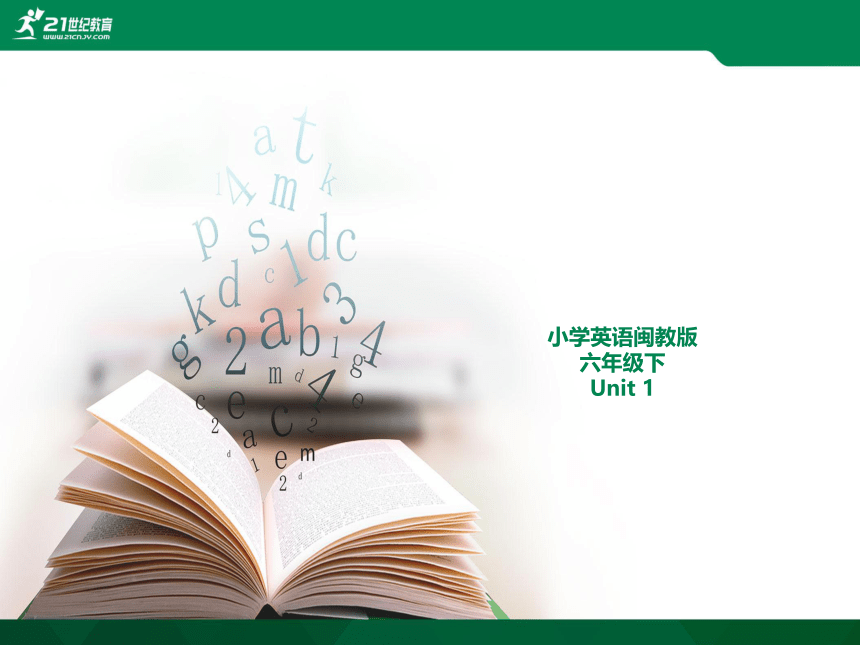
|
|
| 格式 | zip | ||
| 文件大小 | 6.1MB | ||
| 资源类型 | 试卷 | ||
| 版本资源 | 闽教版(三年级起点) | ||
| 科目 | 英语 | ||
| 更新时间 | 2020-11-03 14:02:21 | ||
图片预览

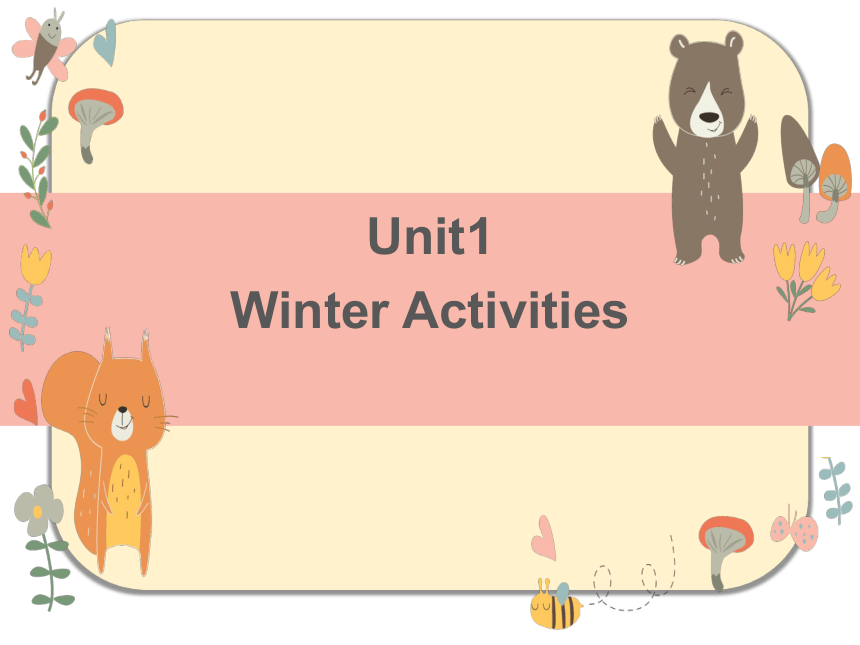
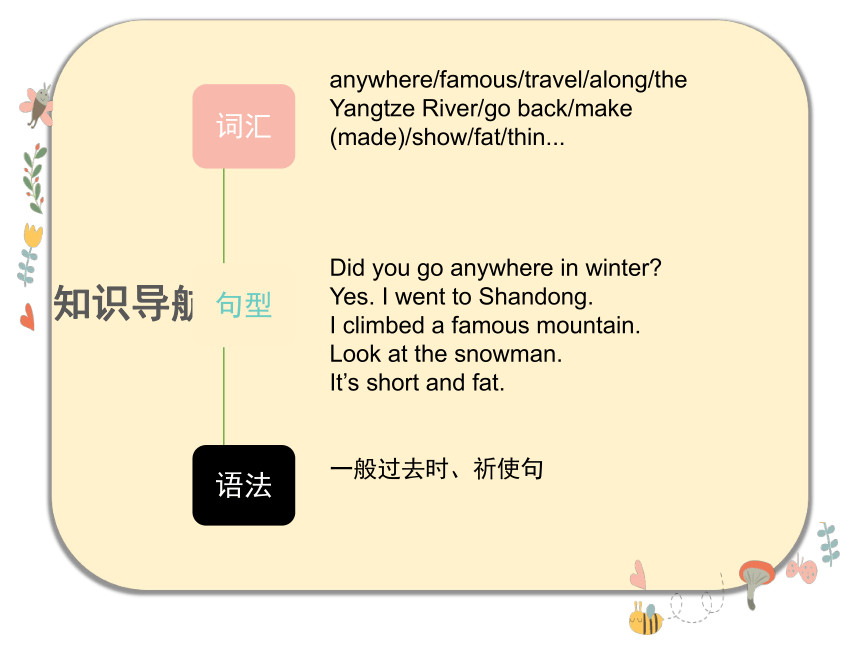
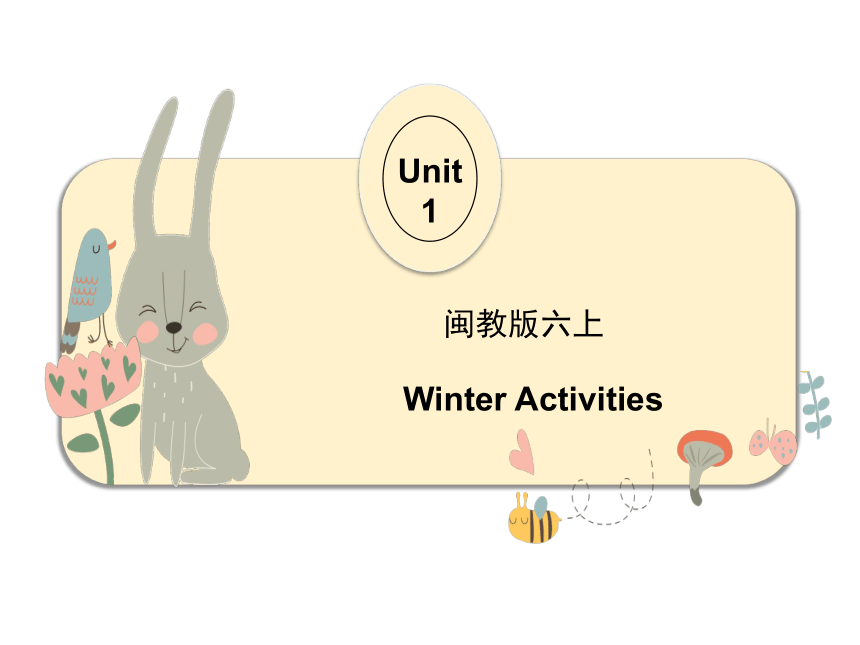
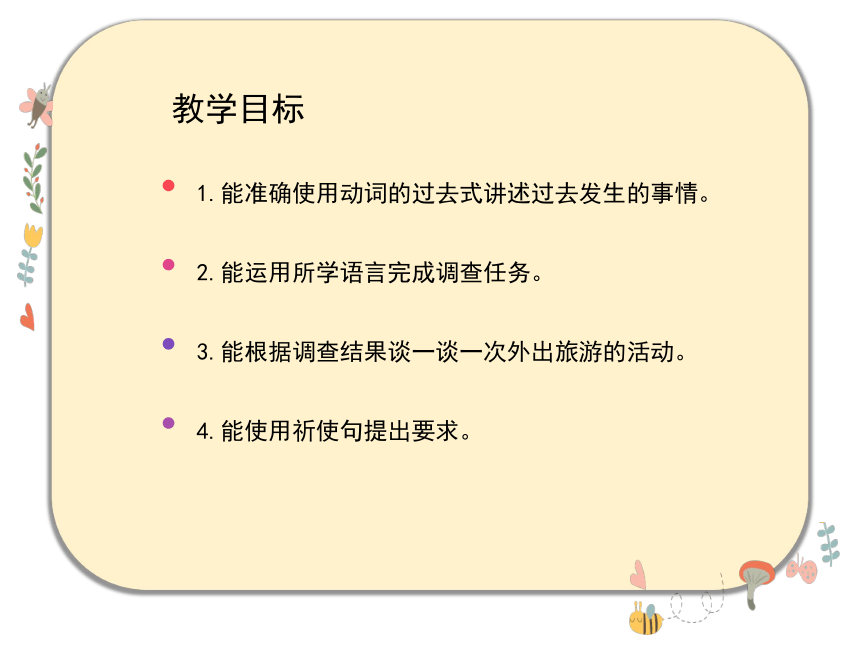
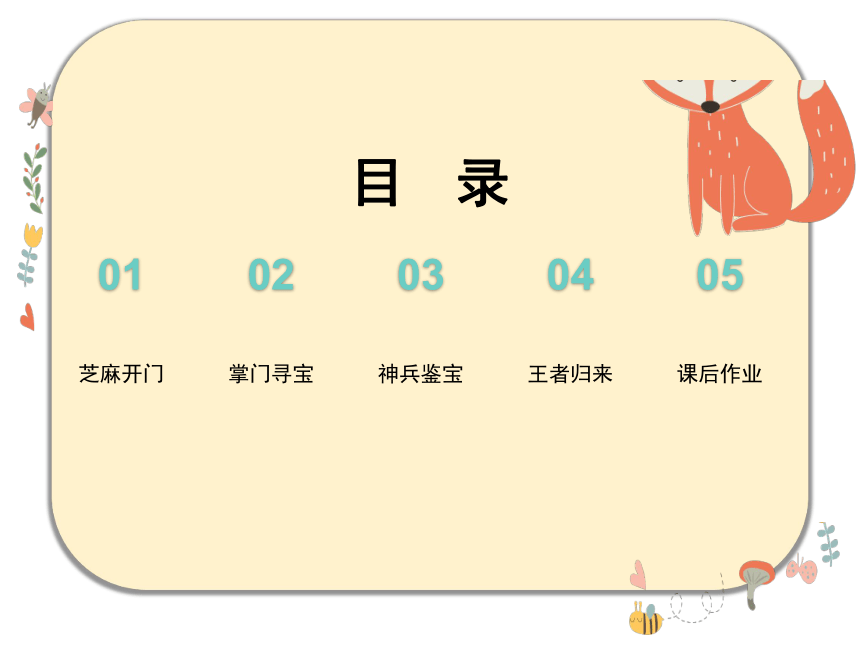
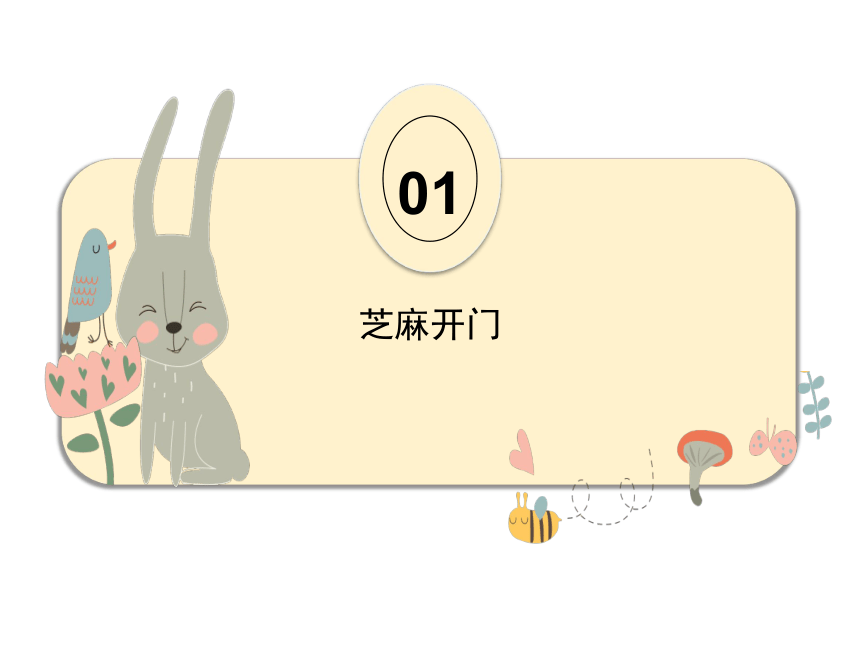
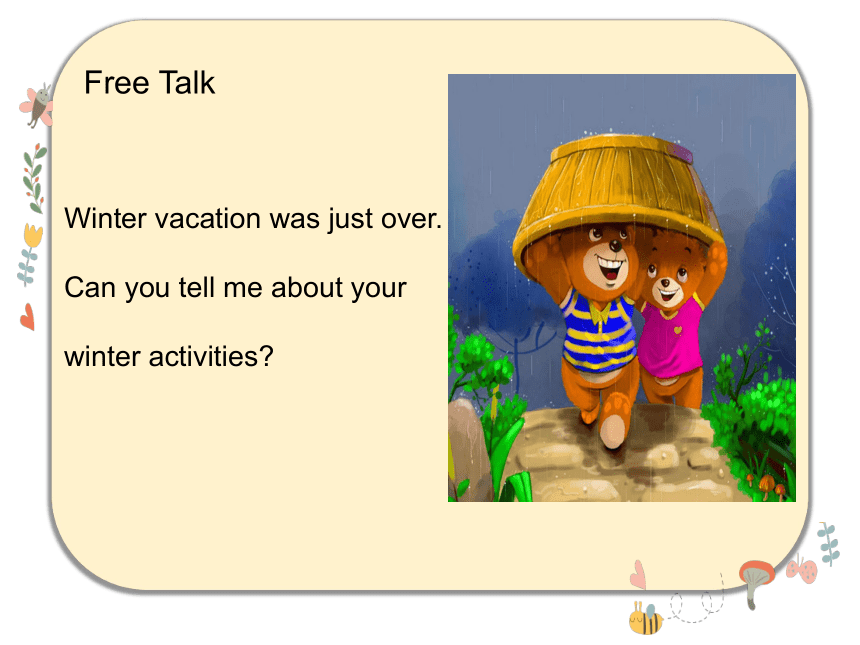
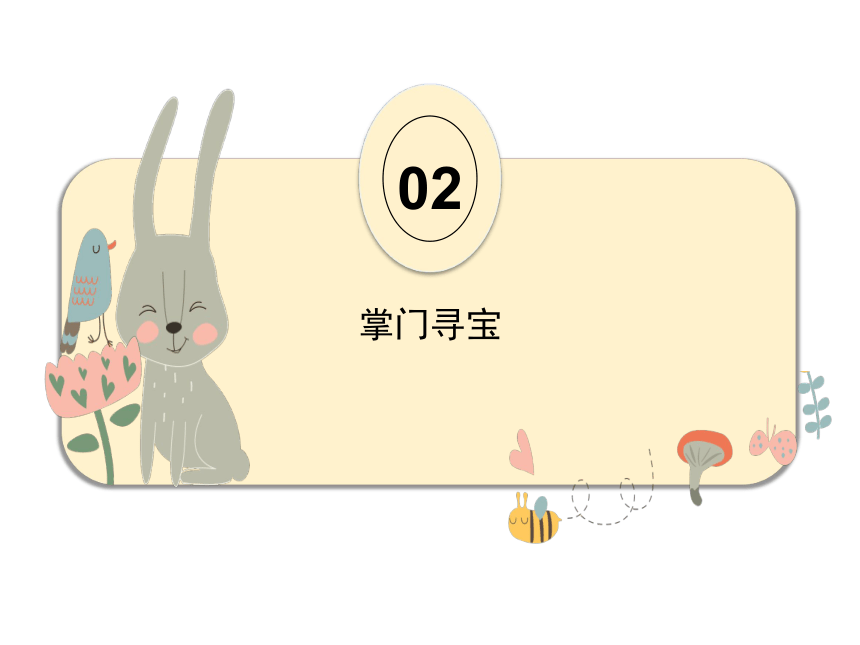
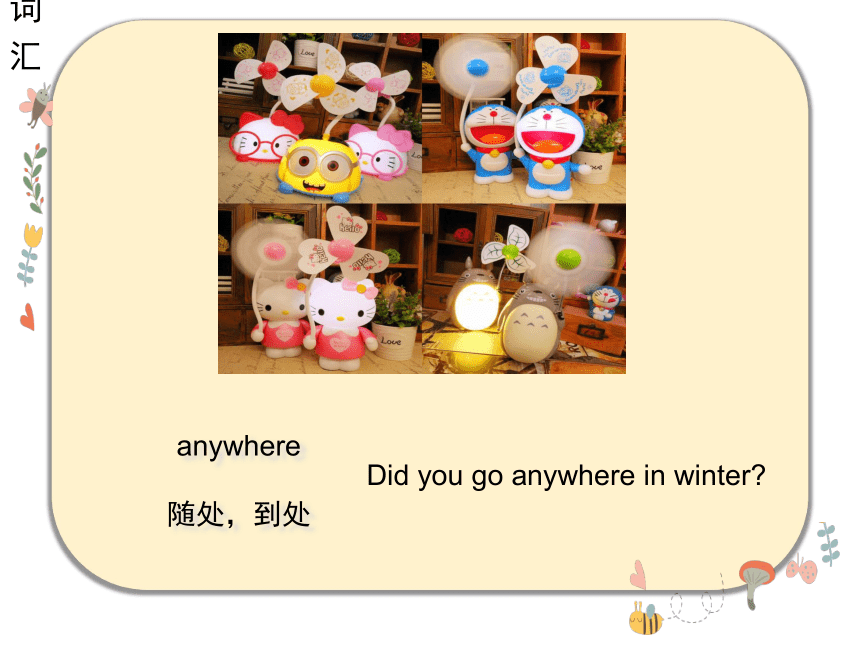
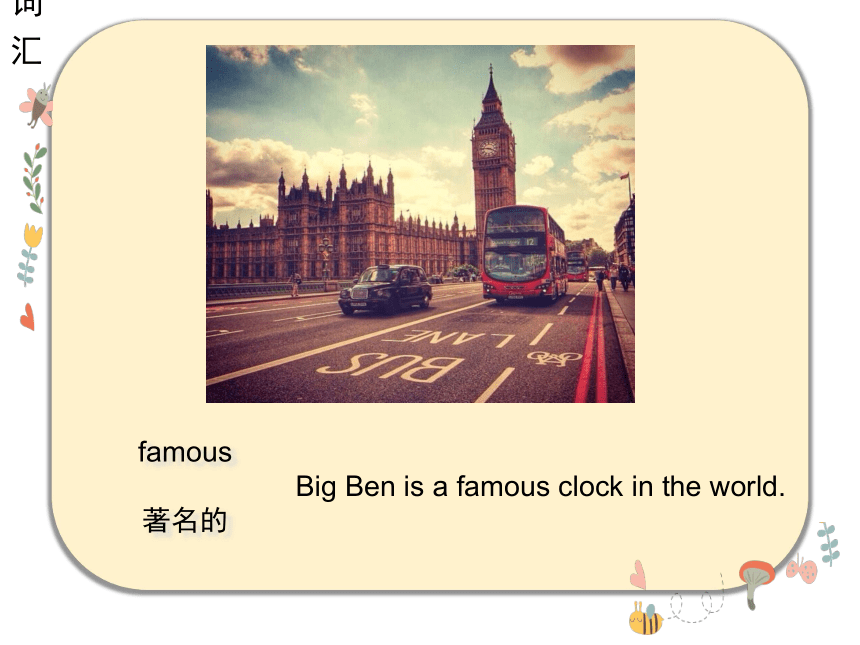
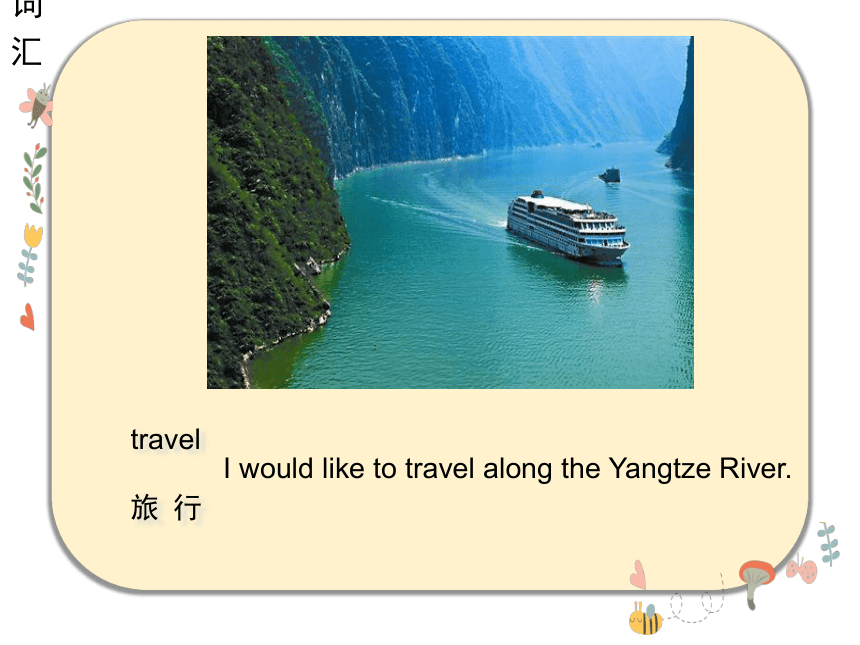
文档简介
(共63张PPT)
小学英语闽教版
六年级下
Unit
1
Unit1
Winter
Activities
知识导航
词汇
anywhere/famous/travel/along/the
Yangtze
River/go
back/make
(made)/show/fat/thin...
句型
Did
you
go
anywhere
in
winter?
Yes.
I
went
to
Shandong.
I
climbed
a
famous
mountain.
Look
at
the
snowman.
It’s
short
and
fat.
语法
一般过去时、祈使句
Unit1
闽教版六上
Winter
Activities
教学目标
1.能准确使用动词的过去式讲述过去发生的事情。
2.能运用所学语言完成调查任务。
3.能根据调查结果谈一谈一次外出旅游的活动。
4.能使用祈使句提出要求。
01
芝麻开门
目录
02
掌门寻宝
03
神兵鉴宝
04
王者归来
05
课后作业
芝麻开门
01
Free
Talk
Winter
vacation
was
just
over.
Can
you
tell
me
about
your
winter
activities?
掌门寻宝
02
词
汇
anywhere
随处,到处
Did
you
go
anywhere
in
winter?
词
汇
famous
著名的
Big
Ben
is
a
famous
clock
in
the
world.
词
汇
travel
旅
行
I
would
like
to
travel
along
the
Yangtze
River.
词
汇
made
做;
(make)过去式
I
made
a
snowman
last
night.
词
汇
show
给...看
Show
me
the
photo,please.
词
汇
fat
胖
的
This
man
is
fat.
词
汇
thin
瘦的
This
man
is
thin.
词
汇
along
沿
着
They
are
walking
along
the
river.
单词接龙
老师和学生轮流抽查单词,老师抽查本单元所学单词及短语,学生需说出来并spell;学生可随意抽查老师单词并要求其spell,一人一个轮流,回答不出来者游戏闯关失败,须接受“真心话
&
大冒险”的惩罚!
练一练
短
语
go/went
back
回
到
I
went
back
to
my
hometown.
短
语
Ice
and
Snow
Festival
冰雪节
I
had
fun
in
last
Ice
and
Snow
Festival.
短
语
the
Yangtze
River
长江
They
live
in
the
Yangtze
river.
练一练
1.They
live
in
.
2.I
had
fun
in
last
.
3.I
to
my
hometown.
根据记忆不全句子
神兵鉴宝
03
1.anywhere
是副词,意思是“在、向或到任何地方”。多用于否定句或疑问句
2.1
famous是形容词,意思是“出名的,著名的”
2.2
be
famous
for:“以……出名”,如:
This
city
is
famous
for
its
tea.(这个城市以茶叶出名。)
在江河的名字前面要使用定冠词the
go
back
to…是“回到某处”的意思
元音字母在开音节中发其各自的字母音
a-/ei/;
e-/i:/;
i-/ai/;o-/?u/;
u-/
ju:/
练一练
a
e
i
o
u
一、请在对应的元音字母下写出相应的单词
Let’s
have
a
look!
二、
汉英互译
1.旅行_____________
2.along______________
3.anywhere__________
4.著名的______________
5.长江
___________
练一练
二、
汉英互译
1.旅行
travel
2.along
沿
着
3.anywhere
任何地方
4.著名的
famous
5.长江
the
Yangtze
River
练一练
【答
案】
I
traveled
along
_______________
三、根据图片和上下文补全句子
练一练
I
traveled
along
the
Yangtze
River
.
三、根据图片和上下文补全句子
练一练
【答
案】
1.在英语中“I
”则要放到后
2.snowman(雪人)的复数形式snowmen,
make
的过去式是made
1.
fat是形容词,意思是“胖的,肥的”。注意:在英语中说一个人fat会显得很不尊重他人,一般用委婉语
stout
(壮的)来替代。
2.
short解释为“矮的”时,其反义词是“高的”tall;short
解释为“短的”时,其反义词是
“长的”long。
2.以不发音的e结尾,词尾+d;love-loved;
move-moved;
4.以重读闭音节结尾,双写尾字母再加ed;
stop-stopped;
1.一般情况下,动词词尾+ed;clime-climed;
play-played;
3.以“辅音字母+y”结尾,改”y”为“i”,再加ed;
sthdy-studied;
try-tried;
动词过去式变形规则
非规则变化:
be---was/were
go---went
swim---swam
climb---climbed......
练一练
写出下列动词的过去式。
make——
go——
am——
take——
climb——
【答案】
1.made
2.went
3.was
4.took
5.climbed
【解析】略
练一练
祈使句:表示请求、命令、建议、警告等的句子。
结构:动词原形+其他;
如:Open
the
door!
练一练
译一译
1.开门
2.关窗
3.把书放在桌上
【答案】
1.Open
the
door.
2.Close
the
window.
3.Put
the
books
in
the
table.
【解析】
祈使句结构:
动词原形+其他
练一练
二.句型转换
练一练
1.
There
were
many
people.
(转换成疑问句)
______
______
many
people?
2.
Yes,
I
did.
(对划线部分提问)
_____
_____
go
to
see
the
show?
3.
Did
you
have
fun?
(作肯定回答)
_______,
I
did.
【答案】
1.
Were
you
2.
Did
you
3.
Yes
【解析】
略
练一练
王者归来
04
一、译一译
1.
你冬天有去什么地方吗,山姆?
2.
我去了哈尔滨。
3.
我拍了很多照片。
4.
那里冷吗?
练一练
【答案】
1.
Did
you
go
anywhere
in
winter,
Sam?
2.
I
went
to
Harbin.
3.
I
took
many
photos.
4.
Was
it
cold?
【解析】
略
练一练
二.根据情景选择正确的一项
练一练
(
)1.你想知道丽丽冬天有没有去什么地方,你可以说:
A.
Did
you
go
anywhere
in
winter?
B.
Did
you
go
somewhere
in
winter?
(
)2.你告诉小伙伴你冬天去了海南,你可以说:
A.
I
go
to
Hainan.
B.
I
went
to
Hainan.
【答案】
A
B
【解析】
1.anywhere用在疑问句中;
2.由句意可知是一般过去时;
练一练
三、句型转换
练一练
1.
It
was
very
cold
there.
(转换成疑问句)
______
______
very
cold
there?
2.
I
went
to
Shanghai.
(对划线部分提问)
_____
_____
go
________
in
winter?
3.
Is
it
a
very
long
river?
(作肯定回答)
_______,
it
is.
【答案】
1.
Was
it
2.
Did
you;
anywhere
3.
Yes
【解析】
1.含有be动词的疑问句be动词提前;
2.略
3.一般疑问句肯定回答用yes
练一练
课后作业
05
练一练
一、选择适当的动词填空,并在括号里写出中文意思。
1.
a
flower
show(
)
2.
some
books(
)
3.
snowmen(
)
4.
New
Year
money
(
)
5.
a
mountain(
)
6.
at
home(
)
【答案】
1.Watch
观看花卉展览
2.Read
读书
3.Make
堆雪人
4.Get
得压岁钱
5.Climb
爬山
6.Stay
待在家
【解析】
略
练一练
练一练
二、椐据句意完成句子
1.
It’s
_____(矮的)
and
(胖的)
2.
He
is
(高的)and
(
瘦的).
3.
(给......看)me
the
dress.
4.
I
climbed
a
(著名的)
mountain
.
5.
Did
you
go
(任何地方)
in
winter.
6.They
play
with
their
(堂兄弟姐妹)。
7.There____(be)
a
big
ice
city.
8.
There____(be)
many
people
【答案】
1.short
fat
2.tall
thin
3.Show
4.famous
5.anywhere
6.cousins
7.is
8.are
【解析】
1-6
略
7
由a可知是单数;
8.由many可知是复数
练一练
练一练
三、选词填空,
将答案写在横线上
1.
I
often
to
school
at
seven
o’clock.(go
goes
went
)
2.
I
many
photos
last
week.
(take
,
takes
,
took
).
3.
Sometimes
Lily
____
up
at
six.
(
get
,
gets
,
got
).
4.I
usually
_____rice
and
fish
for
lunch.
(
have,
had
,
has
)
5.He
always
___
Tv
on
Sundays.
(
watched,
watches.)
【答案】
1.go
2.took
3.gets
4.have
5.watches
【解析】
1.一般现在时;
2.一般过去时
3-5
一般现在时
练一练
四.阅读短文,选择正确答案,将其序号填入题前括号内
The
Spring
Festival(春节)is
our
Chinese
people’s
festival.
There
are
different
names
for
each
year.
We
all
call
it
the
year
of
monkey,
the
year
of
dog…
and
this
year
is
the
year
of
Chicken.
Before
the
day
of
the
festival,
people
are
busy
shopping
and
cleaning.
On
the
Eve(除夕),
there
is
a
big
family
dinner.
After
dinner,
all
the
family
stay
up
late(守夜)
to
welcome
the
new
year.
In
the
middle
of
the
night,
we
have
some
dumplings(饺子)
and
watch
TV.
On
the
first
day
of
the
New
Year,
people
wear
new
clothes
to
visit
their
relatives
and
say
“Happy
New
Year”
to
each
other.
(
)1.
There
are
different
names
for
Chinese
years.
A.
10
B.
11
C.
12
(
)2.
When
is
the
Eve
in
Chinese
year?
A.
The
evening
of
the
Spring
Festival.
B.
The
evening
before
the
Spring
Festival.
C.
The
evening
after
the
Spring
Festival.
(
)3.
People
before
the
Spring
Festival.
A.sing
and
dance
B.go
shopping
and
clean
the
house
C.play
games
(
)4.
are
the
favorite
food
for
Chinese
people
on
the
Eve.
A.
Cakes
B.
Dumplings
C.
Noodles
(
)5.
On
the
festival
people
usually
.
A.
wear
new
clothes
B.
go
to
visit
their
relatives
C.
A
and
B
【答案】
1.C
2.B
3.B
4.B
5.C
【解析】
略
练一练
Thanks
谢谢
21世纪教育网(www.21cnjy.com)
中小学教育资源网站
有大把高质量资料?一线教师?一线教研员?
欢迎加入21世纪教育网教师合作团队!!月薪过万不是梦!!
详情请看:
https://www.21cnjy.com/help/help_extract.php
小学英语闽教版
六年级下
Unit
1
Unit1
Winter
Activities
知识导航
词汇
anywhere/famous/travel/along/the
Yangtze
River/go
back/make
(made)/show/fat/thin...
句型
Did
you
go
anywhere
in
winter?
Yes.
I
went
to
Shandong.
I
climbed
a
famous
mountain.
Look
at
the
snowman.
It’s
short
and
fat.
语法
一般过去时、祈使句
Unit1
闽教版六上
Winter
Activities
教学目标
1.能准确使用动词的过去式讲述过去发生的事情。
2.能运用所学语言完成调查任务。
3.能根据调查结果谈一谈一次外出旅游的活动。
4.能使用祈使句提出要求。
01
芝麻开门
目录
02
掌门寻宝
03
神兵鉴宝
04
王者归来
05
课后作业
芝麻开门
01
Free
Talk
Winter
vacation
was
just
over.
Can
you
tell
me
about
your
winter
activities?
掌门寻宝
02
词
汇
anywhere
随处,到处
Did
you
go
anywhere
in
winter?
词
汇
famous
著名的
Big
Ben
is
a
famous
clock
in
the
world.
词
汇
travel
旅
行
I
would
like
to
travel
along
the
Yangtze
River.
词
汇
made
做;
(make)过去式
I
made
a
snowman
last
night.
词
汇
show
给...看
Show
me
the
photo,please.
词
汇
fat
胖
的
This
man
is
fat.
词
汇
thin
瘦的
This
man
is
thin.
词
汇
along
沿
着
They
are
walking
along
the
river.
单词接龙
老师和学生轮流抽查单词,老师抽查本单元所学单词及短语,学生需说出来并spell;学生可随意抽查老师单词并要求其spell,一人一个轮流,回答不出来者游戏闯关失败,须接受“真心话
&
大冒险”的惩罚!
练一练
短
语
go/went
back
回
到
I
went
back
to
my
hometown.
短
语
Ice
and
Snow
Festival
冰雪节
I
had
fun
in
last
Ice
and
Snow
Festival.
短
语
the
Yangtze
River
长江
They
live
in
the
Yangtze
river.
练一练
1.They
live
in
.
2.I
had
fun
in
last
.
3.I
to
my
hometown.
根据记忆不全句子
神兵鉴宝
03
1.anywhere
是副词,意思是“在、向或到任何地方”。多用于否定句或疑问句
2.1
famous是形容词,意思是“出名的,著名的”
2.2
be
famous
for:“以……出名”,如:
This
city
is
famous
for
its
tea.(这个城市以茶叶出名。)
在江河的名字前面要使用定冠词the
go
back
to…是“回到某处”的意思
元音字母在开音节中发其各自的字母音
a-/ei/;
e-/i:/;
i-/ai/;o-/?u/;
u-/
ju:/
练一练
a
e
i
o
u
一、请在对应的元音字母下写出相应的单词
Let’s
have
a
look!
二、
汉英互译
1.旅行_____________
2.along______________
3.anywhere__________
4.著名的______________
5.长江
___________
练一练
二、
汉英互译
1.旅行
travel
2.along
沿
着
3.anywhere
任何地方
4.著名的
famous
5.长江
the
Yangtze
River
练一练
【答
案】
I
traveled
along
_______________
三、根据图片和上下文补全句子
练一练
I
traveled
along
the
Yangtze
River
.
三、根据图片和上下文补全句子
练一练
【答
案】
1.在英语中“I
”则要放到后
2.snowman(雪人)的复数形式snowmen,
make
的过去式是made
1.
fat是形容词,意思是“胖的,肥的”。注意:在英语中说一个人fat会显得很不尊重他人,一般用委婉语
stout
(壮的)来替代。
2.
short解释为“矮的”时,其反义词是“高的”tall;short
解释为“短的”时,其反义词是
“长的”long。
2.以不发音的e结尾,词尾+d;love-loved;
move-moved;
4.以重读闭音节结尾,双写尾字母再加ed;
stop-stopped;
1.一般情况下,动词词尾+ed;clime-climed;
play-played;
3.以“辅音字母+y”结尾,改”y”为“i”,再加ed;
sthdy-studied;
try-tried;
动词过去式变形规则
非规则变化:
be---was/were
go---went
swim---swam
climb---climbed......
练一练
写出下列动词的过去式。
make——
go——
am——
take——
climb——
【答案】
1.made
2.went
3.was
4.took
5.climbed
【解析】略
练一练
祈使句:表示请求、命令、建议、警告等的句子。
结构:动词原形+其他;
如:Open
the
door!
练一练
译一译
1.开门
2.关窗
3.把书放在桌上
【答案】
1.Open
the
door.
2.Close
the
window.
3.Put
the
books
in
the
table.
【解析】
祈使句结构:
动词原形+其他
练一练
二.句型转换
练一练
1.
There
were
many
people.
(转换成疑问句)
______
______
many
people?
2.
Yes,
I
did.
(对划线部分提问)
_____
_____
go
to
see
the
show?
3.
Did
you
have
fun?
(作肯定回答)
_______,
I
did.
【答案】
1.
Were
you
2.
Did
you
3.
Yes
【解析】
略
练一练
王者归来
04
一、译一译
1.
你冬天有去什么地方吗,山姆?
2.
我去了哈尔滨。
3.
我拍了很多照片。
4.
那里冷吗?
练一练
【答案】
1.
Did
you
go
anywhere
in
winter,
Sam?
2.
I
went
to
Harbin.
3.
I
took
many
photos.
4.
Was
it
cold?
【解析】
略
练一练
二.根据情景选择正确的一项
练一练
(
)1.你想知道丽丽冬天有没有去什么地方,你可以说:
A.
Did
you
go
anywhere
in
winter?
B.
Did
you
go
somewhere
in
winter?
(
)2.你告诉小伙伴你冬天去了海南,你可以说:
A.
I
go
to
Hainan.
B.
I
went
to
Hainan.
【答案】
A
B
【解析】
1.anywhere用在疑问句中;
2.由句意可知是一般过去时;
练一练
三、句型转换
练一练
1.
It
was
very
cold
there.
(转换成疑问句)
______
______
very
cold
there?
2.
I
went
to
Shanghai.
(对划线部分提问)
_____
_____
go
________
in
winter?
3.
Is
it
a
very
long
river?
(作肯定回答)
_______,
it
is.
【答案】
1.
Was
it
2.
Did
you;
anywhere
3.
Yes
【解析】
1.含有be动词的疑问句be动词提前;
2.略
3.一般疑问句肯定回答用yes
练一练
课后作业
05
练一练
一、选择适当的动词填空,并在括号里写出中文意思。
1.
a
flower
show(
)
2.
some
books(
)
3.
snowmen(
)
4.
New
Year
money
(
)
5.
a
mountain(
)
6.
at
home(
)
【答案】
1.Watch
观看花卉展览
2.Read
读书
3.Make
堆雪人
4.Get
得压岁钱
5.Climb
爬山
6.Stay
待在家
【解析】
略
练一练
练一练
二、椐据句意完成句子
1.
It’s
_____(矮的)
and
(胖的)
2.
He
is
(高的)and
(
瘦的).
3.
(给......看)me
the
dress.
4.
I
climbed
a
(著名的)
mountain
.
5.
Did
you
go
(任何地方)
in
winter.
6.They
play
with
their
(堂兄弟姐妹)。
7.There____(be)
a
big
ice
city.
8.
There____(be)
many
people
【答案】
1.short
fat
2.tall
thin
3.Show
4.famous
5.anywhere
6.cousins
7.is
8.are
【解析】
1-6
略
7
由a可知是单数;
8.由many可知是复数
练一练
练一练
三、选词填空,
将答案写在横线上
1.
I
often
to
school
at
seven
o’clock.(go
goes
went
)
2.
I
many
photos
last
week.
(take
,
takes
,
took
).
3.
Sometimes
Lily
____
up
at
six.
(
get
,
gets
,
got
).
4.I
usually
_____rice
and
fish
for
lunch.
(
have,
had
,
has
)
5.He
always
___
Tv
on
Sundays.
(
watched,
watches.)
【答案】
1.go
2.took
3.gets
4.have
5.watches
【解析】
1.一般现在时;
2.一般过去时
3-5
一般现在时
练一练
四.阅读短文,选择正确答案,将其序号填入题前括号内
The
Spring
Festival(春节)is
our
Chinese
people’s
festival.
There
are
different
names
for
each
year.
We
all
call
it
the
year
of
monkey,
the
year
of
dog…
and
this
year
is
the
year
of
Chicken.
Before
the
day
of
the
festival,
people
are
busy
shopping
and
cleaning.
On
the
Eve(除夕),
there
is
a
big
family
dinner.
After
dinner,
all
the
family
stay
up
late(守夜)
to
welcome
the
new
year.
In
the
middle
of
the
night,
we
have
some
dumplings(饺子)
and
watch
TV.
On
the
first
day
of
the
New
Year,
people
wear
new
clothes
to
visit
their
relatives
and
say
“Happy
New
Year”
to
each
other.
(
)1.
There
are
different
names
for
Chinese
years.
A.
10
B.
11
C.
12
(
)2.
When
is
the
Eve
in
Chinese
year?
A.
The
evening
of
the
Spring
Festival.
B.
The
evening
before
the
Spring
Festival.
C.
The
evening
after
the
Spring
Festival.
(
)3.
People
before
the
Spring
Festival.
A.sing
and
dance
B.go
shopping
and
clean
the
house
C.play
games
(
)4.
are
the
favorite
food
for
Chinese
people
on
the
Eve.
A.
Cakes
B.
Dumplings
C.
Noodles
(
)5.
On
the
festival
people
usually
.
A.
wear
new
clothes
B.
go
to
visit
their
relatives
C.
A
and
B
【答案】
1.C
2.B
3.B
4.B
5.C
【解析】
略
练一练
Thanks
谢谢
21世纪教育网(www.21cnjy.com)
中小学教育资源网站
有大把高质量资料?一线教师?一线教研员?
欢迎加入21世纪教育网教师合作团队!!月薪过万不是梦!!
详情请看:
https://www.21cnjy.com/help/help_extract.php
同课章节目录
- Unit 1 Winter Activities
- Part A
- Part B
- Part C
- Unit 2 Helping Each Othe
- Part A
- Part B
- Part C
- Unit 3 Seeing a Docto
- Part A
- Part B
- Part C
- Unit 4 Mother’s Day
- Part A
- Part B
- Part C
- Review 1
- Unit 5 Occupation
- Part A
- Part B
- Part C
- Unit 6 Dream Job
- Part A
- Part B
- Part C
- Unit 7 A Visit to a Middle School
- Part A
- Part B
- Part C
- Unit 8 Farewell
- Part A
- Part B
- Part C
- Review 2
